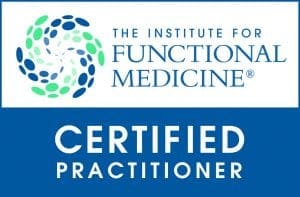Introduction The body is held up by skeletal joints that keep the body upright and provide everyday movements for the body to go anywhere at any time...
Category - Gut and Intestinal Health
Gut and Intestinal Health: The health of an individual’s gut determines what nutrients are being absorbed along with what toxins, allergens, and microbes are being kept out. The gut and intestines are directly linked to the health of the whole body. Intestinal health could be defined as optimal digestion, absorption, and assimilation of food being consumed. However, this is a job that depends on many other factors that can determine a healthy body. More than 100 million Americans have digestive problems and there are two of the top-selling drugs that are for digestive problems, and they run in the billions. There are more than 200 over-the-counter (OTC) remedies for digestive disorders and these can and do create additional digestive problems.
If an individual’s digestion is not working properly, the first thing is to understand what is sending the gut to be out-of-balance in the first place.
From low-fiber and high-sugars to high-calorie diets can cause all the wrong bacteria and yeast to grow in the gut and damages the delicate ecosystem in the intestines.
While overuse of medications that damage the gut or even block normal digestive function like acid blockers (Prilosec, Nexium, etc.), anti-inflammatory medication (aspirin, Advil, and Aleve), antibiotics, steroids, and hormones can cause gut dysfunction.
Undetected gluten intolerance, celiac disease or low-grade food allergies to foods such as dairy, eggs, or corn can even cause gut problems and if it is not treated can become chronic.
From chronic low-grade infections to toxins all the way to stress can cause the gut to become imbalanced and change the normal bacteria.
When patients go to see their primary care doctors, visits for intestinal disorders are among the most common trips. Most doctors do not recognize or know that digestive problems can wreak havoc in the entire body, thus leading to allergies, arthritis, autoimmune disease, rashes, acne, chronic fatigue, mood disorders, autism, dementia, cancer, and more.
By having a proper gut and intestinal health is absolutely central to a person’s health since it is connected to everything that happens in the body.
Introduction The body works by ensuring that the brain in the central nervous system and the gut in the gut system are metabolizing homeostasis and...
Introduction One of the unique features of the body is when the gut and nervous systems have this communication partnership where information is...
Introduction The body has many nerves that intertwine and branch out from the spinal cord in the central nervous system. These nerves provide many...
Introduction The gut microbiome is “the second brain” in the body as it helps regulate homeostasis and metabolize the immune system for...
Introduction The skin and the gut have a unique connection. The gut system is home to trillions of microorganisms that help metabolize the...
Introduction The skin is the largest organ in the body and encounters numerous factors that can either benefit or harm the body. The skin helps...
Introduction The body is always going through many factors that constantly test the durability that can affect the entire microbiome itself...


















